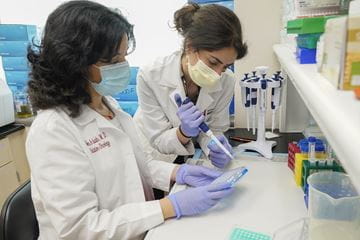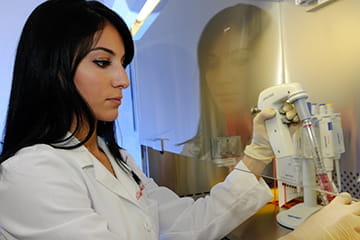The Department of Radiation Oncology is engaged in a wide range of medical research studies. Faculty investigators in this department take full advantage of the close proximity of IU School of Medicine–Indianapolis campus and clinical facilities while leveraging the large biomedical industry in Indiana and collaborative partnerships across traditional academic boundaries. The state’s strong ventures in advanced technology further encourage the establishment of interdisciplinary links.
Interdisciplinary Collaboration
Within IU School of Medicine, ongoing research studies link the Department of Radiation Oncology with faculty investigators in the areas of hematology-oncology, gynecology oncology, pulmonary medicine, pediatrics, neurology and otolaryngology as well as ophthalmology and neurosurgery. Qualified patients have opportunity to participate in numerous areas of clinical research, including active clinical studies in breast, gastrointestinal, lung, genitourinary (prostate, bladder, kidney and testicles) and liver cancers as well as cancer metastases.
Additionally, radiation oncology faculty collaborate with many of the school’s basic science groups, working in laboratories that are well-equipped for state of the art investigations at the cellular and molecular level—both “in vitro” and “in vivo.”
National Recognition and Support
Projects within the department are funded by national institutions, including the United States Department of Defense, the National Science Foundation, the National Institutes of Health, the Clarian Values Fund, and the Indiana Lions Cancer Control Fund, Inc. as well as industrial collaborations and internal resources. The department also participates in several cooperative groups.




